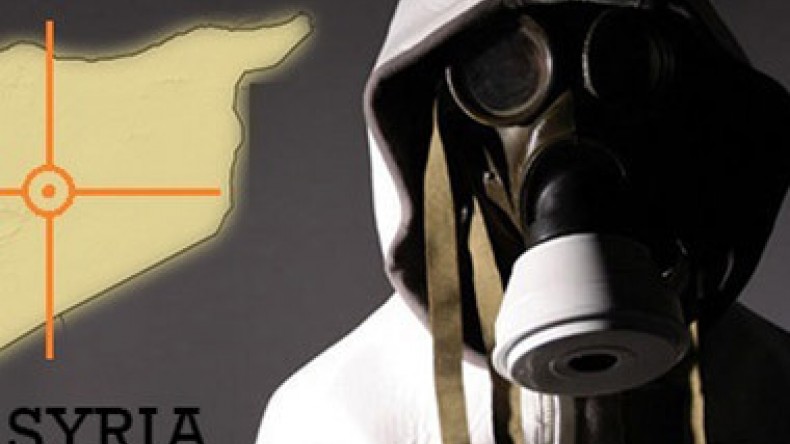
Farewell to Syrian chemical weapons
Russia is leading the international operation to remove chemical weapons from Syria. Russian military personnel and cargo ships, as well as ships from China, Norway and Denmark are taking part in transporting toxic agents, which a few months ago could have served as a pretext for a military operation conducted by the US and its allies against the Syrian authorities. The international operation staff center headed by a Russian commander is set on board the Petr Velikiy battle cruiser, the Voice of Russia reports.
The issue of destroying Syria’s weapons of mass destruction has turned from the realm of politics to a specific technical issue. That leads one to believe that the recent plans of the Syrian opposition, to use power in resolving Syria’s internal conflict to their advantage, will remain as “good intentions.” According to the agreements reached between Moscow and Washington in September 2013, all of the chemical weapons arsenals as well as the production facilities to produce them are to be destroyed by the middle of the current year. Thus, in October 2013 Syria became a member of the Organization for the Prohibition of Chemical Weapons (OPCW). The most dangerous agents will be destroyed outside of the country. Specifically, it will happen on board the American ship Cape Ray in the Mediterranean and possibly in Germany.
Viktor Murakhovsky, editor-in-chief of the Motherland's Arsenal publication, pointed out that over a thousand tons of agents are at stake.
“Those chemicals as such are a dangerous weapon. The equipment and ammunition have been destroyed in Syria's territory. What is left will be taken and destroyed on special ships under the supervision of the Russian Navy as well as other countries. That would provide complete safety of the operation. It is possible that the operation will take longer due to the fact that the decision on the issue of the place where the chemicals were to be destroyed took longer. But most likely, the problem will be completely resolved during this year.”
Two special funds in excess of 10 billion USD have been set up by the United Nations and the OPCW to finance the destruction of the chemicals. At the end of December 2013 Russia sent 75 trucks and armored vehicles to Syria to provide security for the transportation of the chemical weapons, as well as field kitchens and tents for the military personnel taking part in the transportation and destruction of the chemicals. And finally, in January 2014 under Russia's command and in accordance with the order issued by the country's president Vladimir Putin, a unique operation began to transport and serve as a convoy of the lethal cargo to the place where it would be destroyed. Most of the route is by sea, hence the special role of the Russian Navy's operational squadron in the Mediterranean.
The squadron includes eight ships and service vessels headed by the nuclear cruiser Petr Velikiy. Sergey Shoygu, the head of Russia's Ministry of Defense, stated a few days ago that the first portion of the toxic chemicals had already been delivered to the point of destination by a special Danish vessel. However, due to the confidentiality of the information he did not mention what the destination was. During the transportation the cooperation between Russian and Chinese personnel taking part in such a complicated and high profile military operation for the first time went quite smoothly. Previously they established military cooperation only in the framework of a joint military exercise.
Sergey Demidenko, a political scientist, points out the political results of the current operation. He believes that the destruction of the chemical weapons after the end of the civil conflict could weaken Bashar al-Assad's regime, which would lose its main trump card. However, the positive trend is more important.
“Syria has avoided and will avoid in the future accusations of using weapons of mass destruction against civilians. The US and its allies are losing an opportunity to put pressure on Syria by manipulating this issue. Turkey, Saudi Arabia and Europe are also losing a pretext to keep raising the issue of military interference. Russia has improved its image in the international arena. It came up with a firm position, unlike in the situation with Libya, and that position was accepted by the international community, while the plan proposed by Moscow is being fulfilled.”
Moreover, on January 15, 2014 it became known that representatives of some Western special services had visited Damascus in order to discuss cooperation with the Syrian authorities in the area of security. And that is also a positive signal. The present lawful authorities in Syria are no longer so scary for the Western countries so that it has to be fought against by all known means up to carpet-bombing. Damascus is once again becoming a rightful subject of international relations. Moscow has insisted on that specific position throughout the Syrian conflict, one side of which is richly sponsored by Bashar al-Assad's international opponents despite all international norms.
Newsfeed
Videos






























